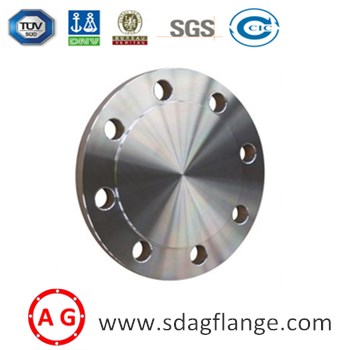The basic instruction and feature of Blind Flange
2025-05-29
What is a Blind Flange?
A Blind Flange is a solid disk used to close the end of a pipe, valve, or pressure vessel opening. It is typically bolted to the flange of a pipe system and does not have a bore, meaning it does not allow fluid to pass through.
Basic Instructions for Use
Selection:
Choose the correct material (e.g., carbon steel, stainless steel, alloy).
Match the size and pressure rating with the pipe system (e.g., ANSI, ASME, DIN standards).
Installation:
Ensure flange faces are clean and aligned.
Insert a gasket between the mating surfaces to ensure a leak-proof seal.
Use appropriate bolts, washers, and torque specifications to secure the blind flange.
Inspection & Testing:
Perform hydrostatic or pressure testing after installation to verify integrity.
Regularly inspect for signs of corrosion, leakage, or damage.
Key Features of a Blind Flange
No Bore
Solid plate with no hole; used to stop flow.
High Pressure Capability
Designed to handle high-pressure environments.
Removable
Can be unbolted for access, cleaning, or system extension.
Material Variety
Available in steel, stainless steel, cast iron, plastic, and more.
Gasket Compatibility
Works with various gasket types (spiral wound, ring-type joint, etc.) for tight sealing.
Standard Sizes
Manufactured according to standards like ANSI/ASME B16.5, DIN, JIS, etc.

Common Applications
Pipeline isolation for maintenance or future expansion
Pressure testing of flow systems
End connections in pressure vessels or tanks
If you are interested in our products or have any questions, please feel free to contact us and we will reply you within 24 hours.


